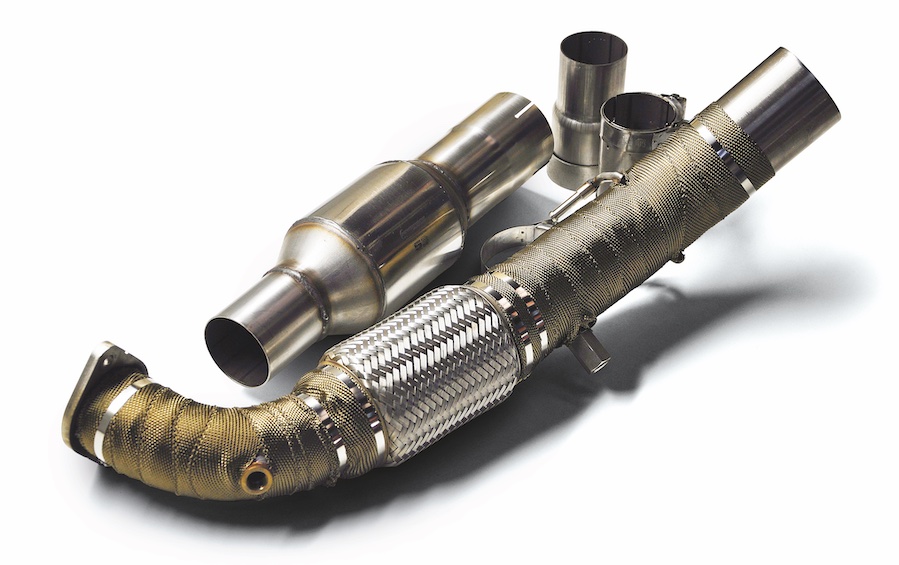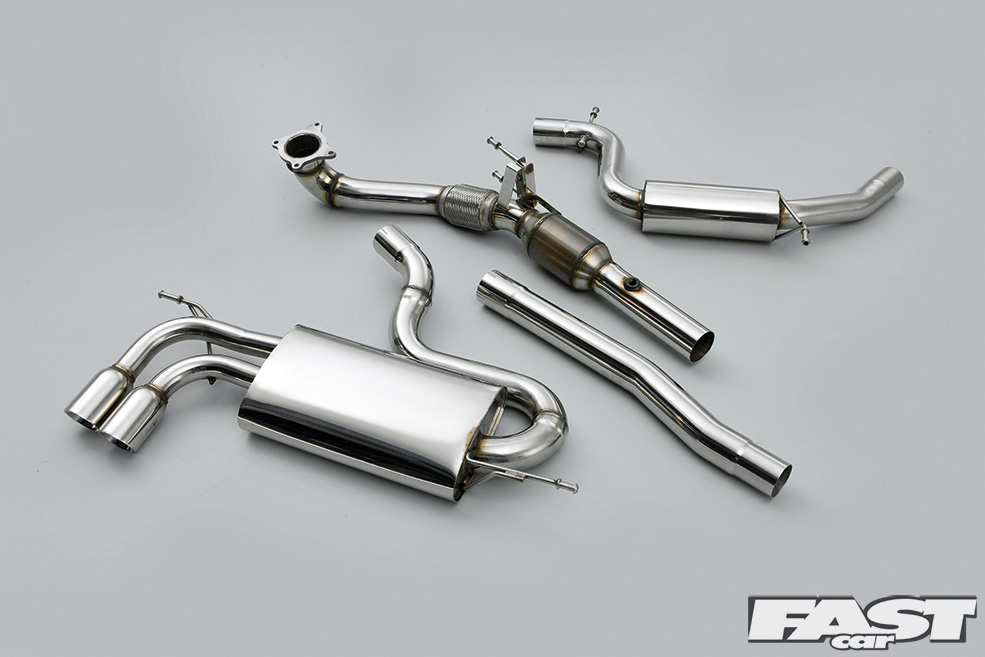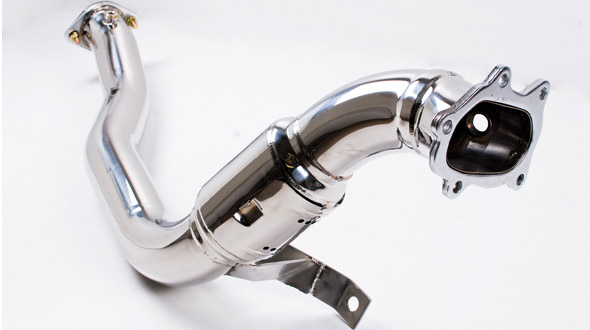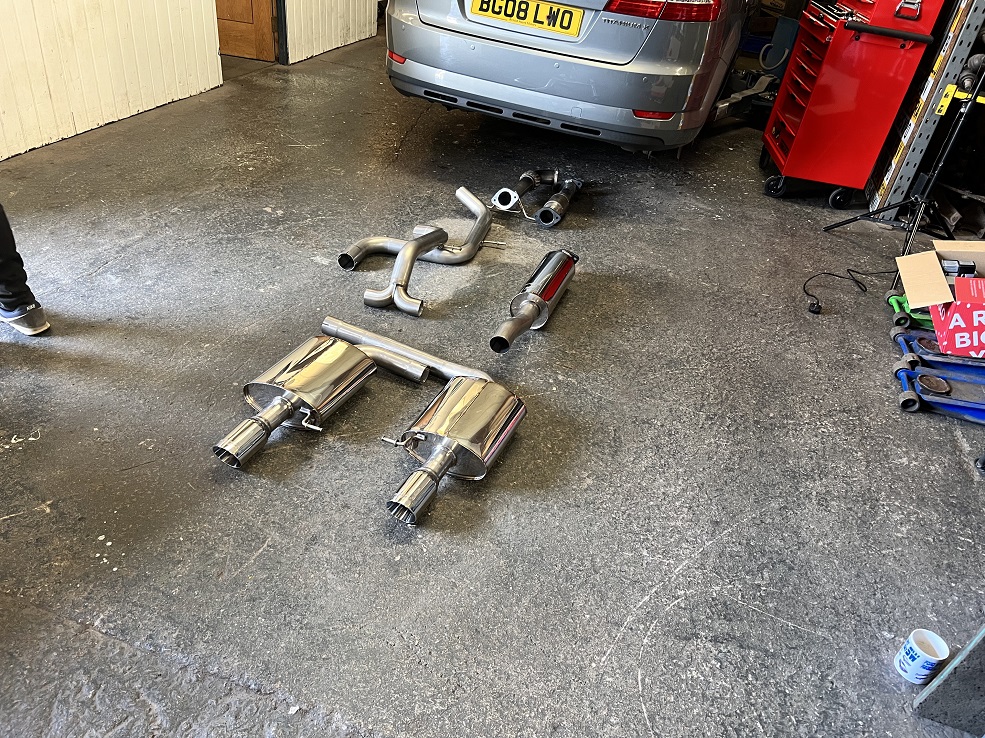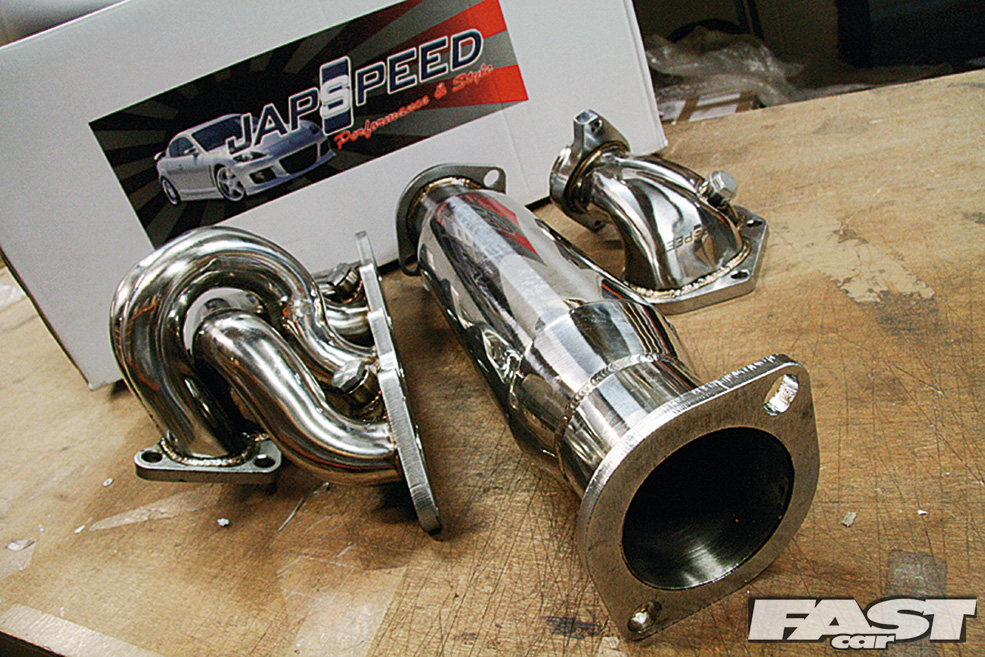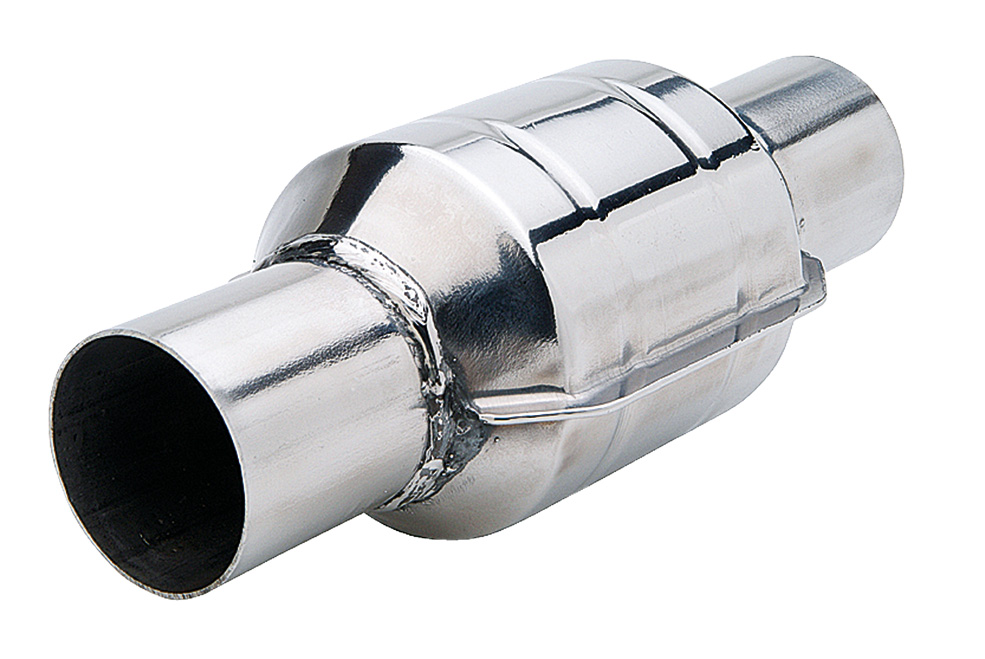In this guide, we take an in-depth look into exhaust downpipes, sports cats and decats and explain how they affect your vehicle’s performance.
If you are an avid car enthusiast, you will likely have heard the terms ‘downpipes’, ‘catalytic converters’, and ‘decats’ when talking about performance exhaust systems, specifically those on modern turbocharged engines. These components may look insignificant, but the truth is they play an essential role in tuning your car’s performance.
Here, we’ll take a closer look at what an exhaust or turbo downpipe is, and how it works with a catalytic converter or decat downpipe to enhance performance. We will also discuss how aftermarket performance downpipes can improve your car’s sound, speed and power output. So, let’s get stuck in…
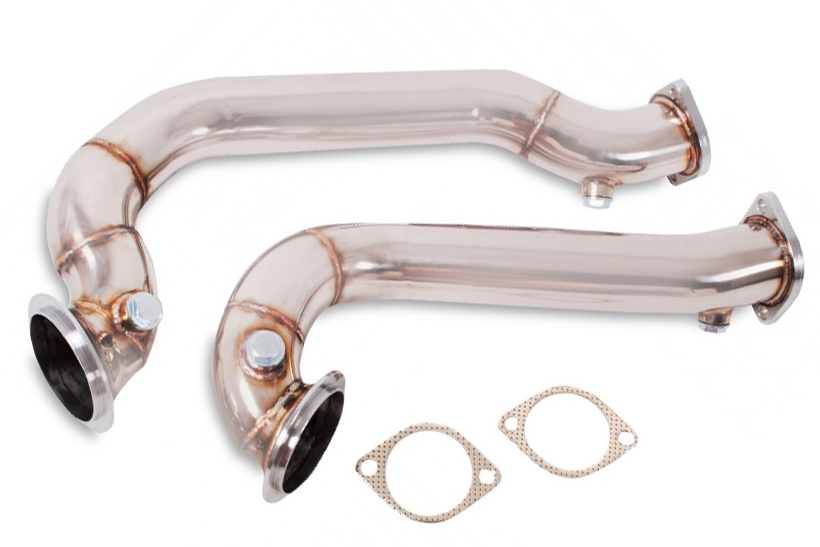
What Are Exhaust Downpipes and Decats?
Exhaust or turbo downpipes play a crucial role in your vehicle’s exhaust system. They are the connecting pipes that channel the exhaust gases from the turbocharger to the rest of the exhaust system. Downpipes are usually located close to the engine and serve as a bridge between the turbo and the catalytic converter.
On the other hand, decats (also known as catless downpipes) refer to downpipes that have been modified to remove the catalytic converter. The catalytic converter’s primary function is to reduce harmful emissions, but it can also create significant exhaust flow restrictions that hinder performance. Decat pipes offer various benefits, including increased airflow, reduced backpressure, and enhanced engine sound. By removing the catalytic converter, decats provide increased exhaust gas flow and allow for performance gains.
The Benefits of Decats and Catless Downpipes
Now, you might be wondering, “Why should I consider decats or catless downpipes for my car?” And the answer is “because they offer several performance advantages”. Allow us to explain…
Optimized Exhaust Flow
Decats and catless downpipes optimize exhaust flow, reducing backpressure and turbo lag. The result? Improved turbo spooling and faster throttle response, unleashing your vehicle’s inner beast. When you hit the gas pedal, you’ll feel the surge of power and acceleration, taking your driving experience to a whole new level.
Increased Power Output
With improved exhaust flow, your engine can breathe easier and generate more power. The additional flow means more air can enter the combustion chambers, resulting in better combustion and increased horsepower and torque. This boost in performance is particularly noticeable in turbocharged vehicles, where every extra bit of power counts.
Aggressive Exhaust Note
If you crave that deep, throaty growl and ear-tingling rumble from your exhaust, decats are your ticket to automotive symphony. Catless downpipes remove the catalytic converter, allowing the exhaust gases to flow more freely and creating a more aggressive and attention-grabbing exhaust note. Your car will sound like a boss, turning heads everywhere you go and announcing your presence with authority.
Enhanced Fuel Efficiency
Better MPG! Really? Yes, contrary to popular belief, decats can even lead to slight fuel efficiency improvements. How is that possible? The improved exhaust flow and reduced backpressure result in more efficient combustion within the engine. When the engine breathes better, it can burn fuel more effectively, leading to better gas mileage. So, not only will your car be more powerful, but it might also become more fuel-efficient, saving you some money at the pump.
Are Decats and Catless Downpipes Legal?
Decats and catless downpipes are a modification that falls into a legal gray area. While they are popular among car enthusiasts for the performance gains and aggressive exhaust note they provide, it’s important to understand the legal implications before making any modifications to your vehicle.
In most countries, including the United States and many in Europe, the installation of decats or catless downpipes is considered illegal for road use. This is because removing the catalytic converter, which is an essential emissions control device, violates emissions regulations.
Driving a vehicle with decats or catless downpipes on public roads can result in various legal consequences. These may include fines, mandatory vehicle inspections, and even the possibility of your car being impounded. It’s important to research and understand the specific laws and regulations in your area before deciding to install decats or catless downpipes on your vehicle.
However, it’s worth noting that some countries and regions do allow these modifications for off-road or track use only. If you’re an avid racer or plan to use your car solely for non-public road activities, then decats or catless downpipes may be a viable option.
What If I Want The Performance of a Decat But Still Want To Remain Legal For Road Use?
If you’re looking for the performance gains of a decat but still want to remain legal for road use, there are a few options to consider. One option is to look for high-flow catalytic converters (also called sports cats) that offer improved performance while still maintaining emissions compliance. These catalytic converters are designed to flow more freely, allowing for better exhaust gas flow and increased power output.
How Does a Sports Catalytic Converter Work?
A sports catalytic converter operates by utilizing a honeycomb structure coated with precious metals to convert harmful pollutants into less harmful gases. It enhances engine performance and sound through increased airflow and reduced backpressure.
Installing Aftermarket Performance Downpipes and Decats
Installing aftermarket performance downpipes and decats can greatly enhance the performance of a vehicle. These modifications improve exhaust flow, increasing horsepower. There are different types available, compatible with specific vehicles. Consider legal and warranty issues before installation, and follow proper maintenance procedures.
DIY Vs Professional Installation
When it comes to installing exhaust downpipes and decats, professional installation is recommended due to the mechanical know-how and specialized tools required. DIY installation can be cost-effective but risky for those without experience. The choice depends on skill level, budget and complexity. Of course, if you’re
Is There Anything Else I Should Be Aware Of When Installing a Decat?
Before jumping on the decat bandwagon, there are a few factors to consider. Firstly, there are legal implications to removing the catalytic converter, depending on your location. Going catless may violate emissions regulations, so it’s crucial to check local laws and regulations before making any modifications.
Secondly, to fully capitalize on the power gains from decats, you may need to remap your car’s ECU. Custom tuning ensures that your engine runs optimally with the increased exhaust flow, maximizing the performance benefits.
Additionally, without the catalytic converter, your vehicle’s oxygen sensors may trigger a Check Engine Light (CEL). To address this issue, consider using a decat pipe with an oxygen sensor spacer. This spacer helps mitigate the CEL problem while still reaping the performance benefits of the decat.
Lastly, for the best results and to avoid any potential issues, it’s recommended to have a qualified mechanic perform the installation. Proper fitment and alignment are critical to prevent leaks and ensure optimal performance of your decats or catless downpipes.
By being aware of these important considerations, you can make an informed decision about installing decats in your vehicle. Responsible modification, paired with professional guidance, will ensure a smooth and rewarding experience with your enhanced exhaust system.
Accessories and Aftermarket Options
When it comes to decats and exhaust downpipes, you’re not limited to one-size-fits-all options. Many manufacturers offer a wide range of aftermarket decats and catless downpipes, catering to various vehicle makes and models. Some even provide decat pipes designed specifically to work seamlessly with your car’s exhaust system.
Remember to invest in quality components made from durable materials like stainless steel or titanium. These materials can withstand the extreme temperatures and harsh conditions encountered in high-performance applications.
Embrace the Power, Embrace the Sound!
So, to all the performance enthusiasts out there, if you’re seeking a way to unlock your car’s true potential, consider upgrading to decats or catless downpipes. The horsepower gains, improved exhaust note, and overall thrill they bring to your driving experience are unmatched.
However, we cannot emphasize enough the importance of researching your local regulations and ensuring proper installation and tuning. Responsible car modification is not only about enjoying the performance but also being mindful of our environmental impact.
Embrace the power, embrace the sound, but do it responsibly. Let your passion for cars drive you to explore new horizons, but always keep safety and legality in mind.

